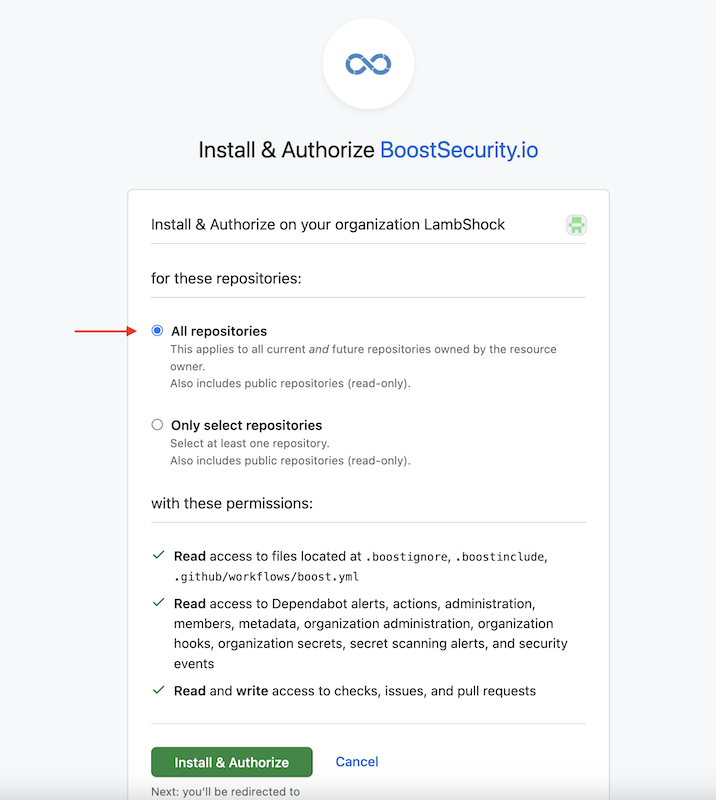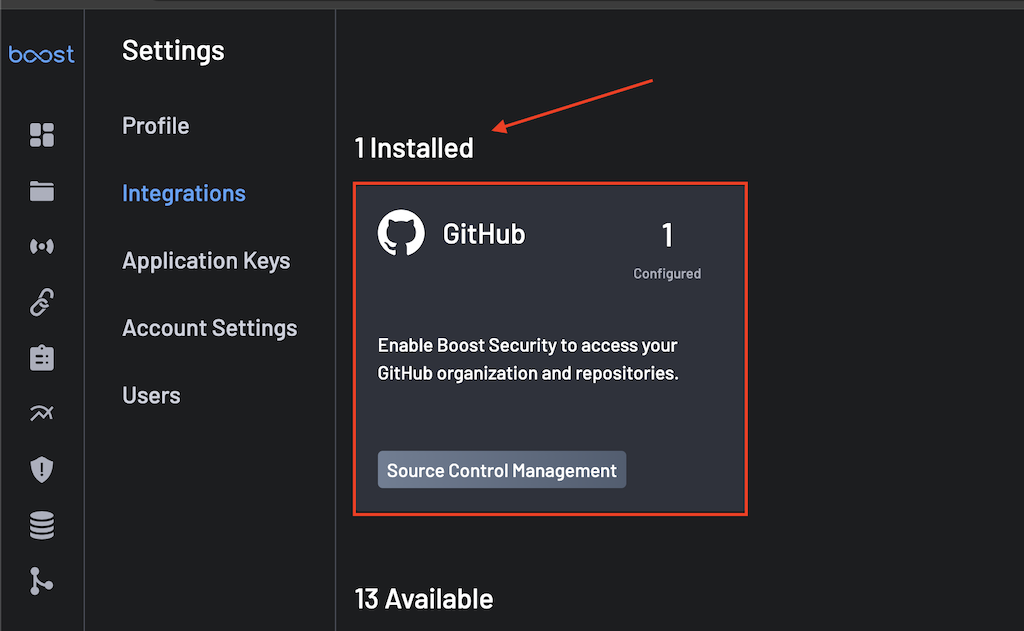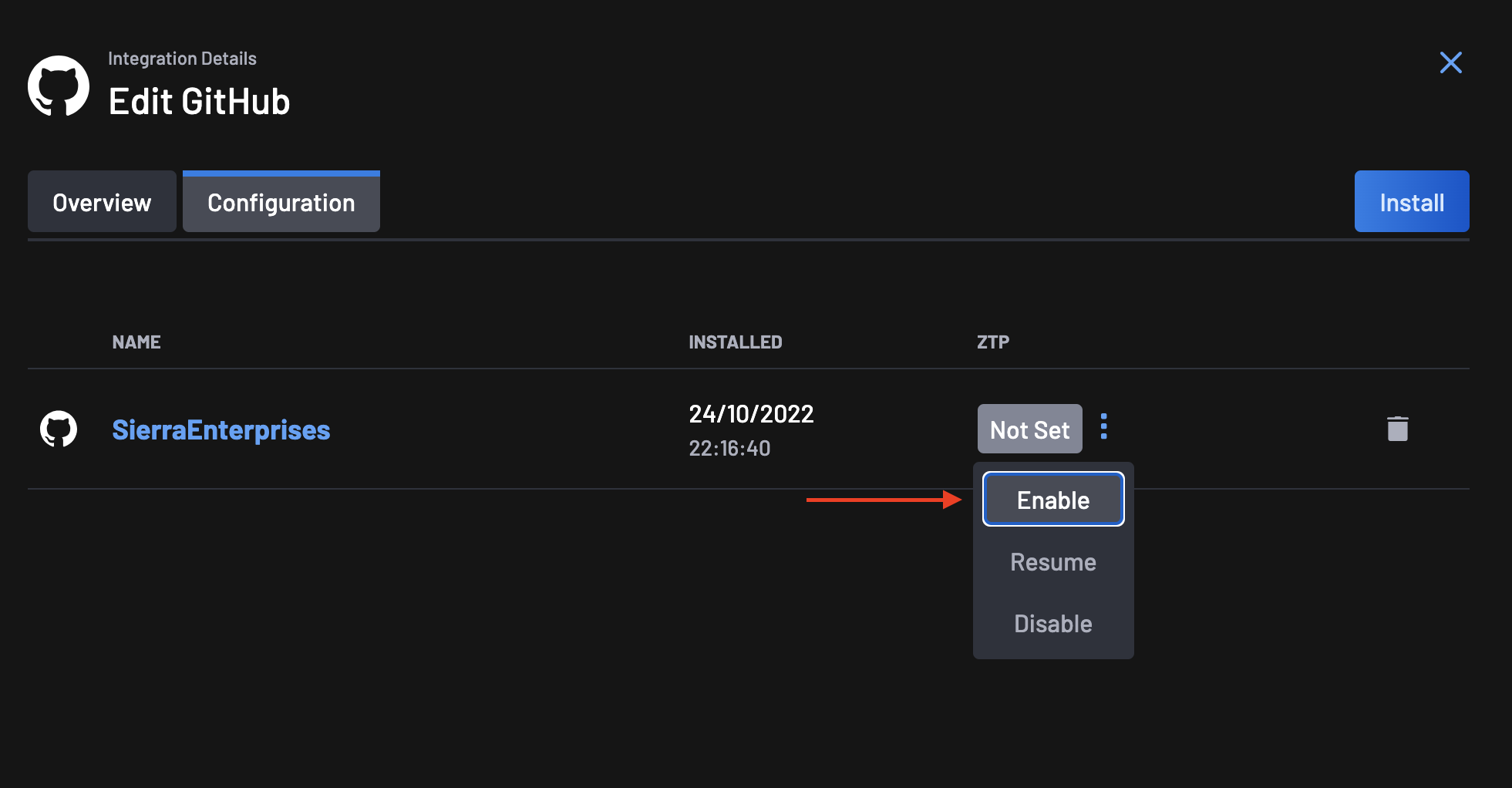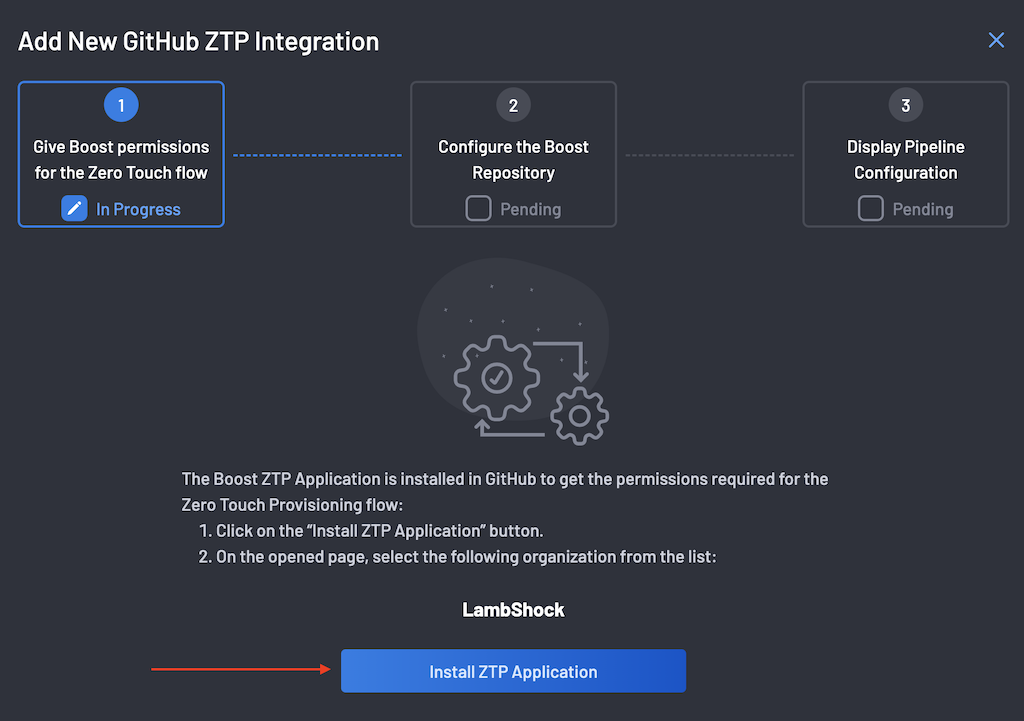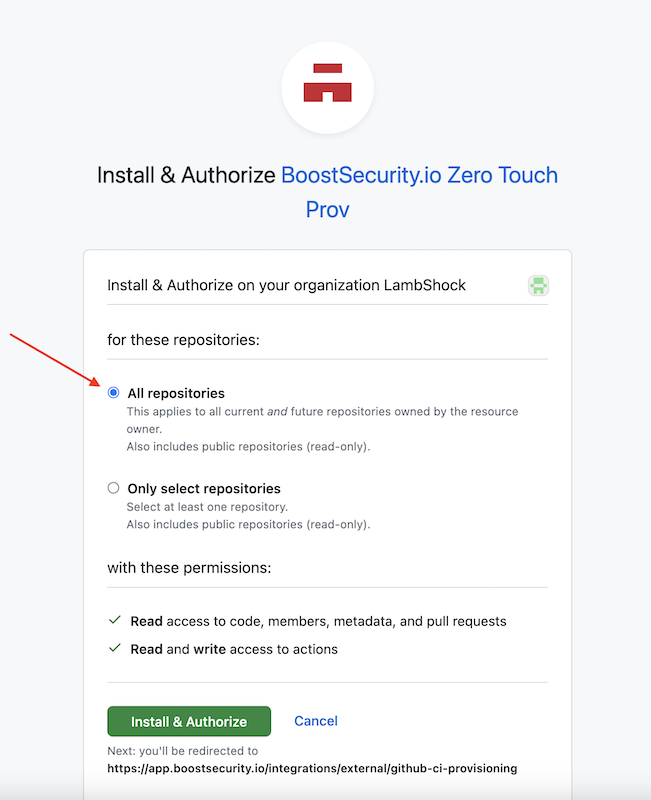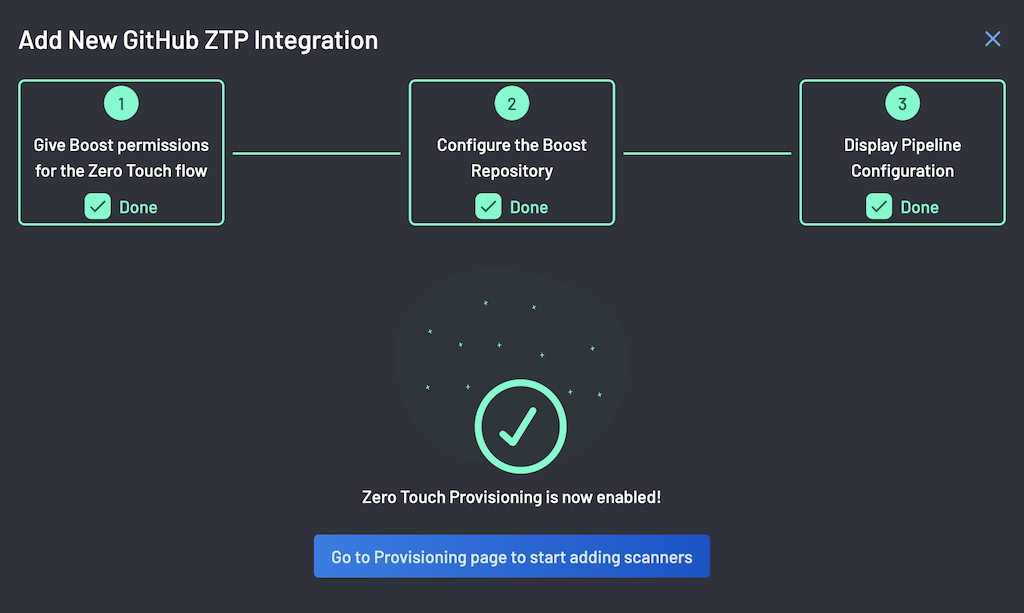Integrate GitHub with BoostSecurity¶
BoostSecurity lets you connect your GitHub organization and apply security checks, including CI/CD supply chain security checks and Dependabot.
Prerequisites¶
As a prerequisite to installing the application:
- Ensure that you have a GitHub organization and the following permissions in place.
- Ensure you have created a
.boostrepository within your organization's SCM, which should contain aREADME.mdfile.
Permissions¶
This integration will require the following permissions:
- Read access - Actions, Dependabot alerts, webhooks, administration, metadata, secret scanning alerts, workflows, and security events.
- Read & Write access - Checks, Issues, Pull Requests.
1. Connect GitHub to BoostSecurity¶
To install the GitHub App on your GitHub organization:
-
Go to Settings on the navigation panel and select Integrations;
Settings > Integrations. -
Choose the GitHub integration from the Available section.
-
Click Install: You will be directed to the GitHub App to install the BoostSecurity GitHub App.
- Select the appropriate GitHub organization on your account you want to install the BoostSecurity GitHub App.
-
Choose whether to install the GitHub App on All repositories or Only select repositories.
Info
If you install the BoostSecurity app on All repositories, the access will apply to all current and future repositories. However, installing the app on Only select repositories would restrict BoostSecurity's access to just those repos. It is therefore recommended to install it for all repositories so that it is simpler to add the BoostSecurity security scanner to new repositories.
-
Click Install and Authorize.
Once the installation is completed, the BoostSecurity GitHub card is added to the Settings > Integrations > Installed section. At this point, the BoostSecurity GitHub App is installed on your GitHub organization!!!
GitHub App Sync¶
BoostSecurity now keeps the installation state of the GitHub App fully synchronized between GitHub and the BoostSecurity dashboard:
- If you uninstall the GitHub App from GitHub, it is automatically removed from your BoostSecurity dashboard.
- If you delete the integration from the BoostSecurity dashboard, it is immediately removed from your GitHub organization.
This ensures both systems remain consistent and eliminates stale integrations or drift between platforms.
2. Zero Touch Provisioning for GitHub¶
Follow these steps to set up Zero Touch Provisioning (ZTP) for GitHub.
-
Go to the Integrations page, select your GitHub integration and click on the
Configurationtab. -
On the ZTP column, you will notice that the status is set to Not Set. Click on the menu next to the status and select Enable.
-
On the ZTP Wizard, the first step is to give BoostSecurity permissions for the Zero Touch Flow on your GitHub Organization.
-
Click the Install ZTP Application button to redirect you to your GitHub organization.
-
Install and authorize the BoostSecurity.io Zero Touch provisioning on all organizations. Click on the Install & Authorize button at the bottom of the page.
-
BoostSecurity configures the
.boostrepo on successful BoostSecurity.io Zero Touch Provisioning installation. -
The pipeline configuration is ready after a successful
.boostrepo configuration!Note
By clicking the Enable Boost Recommended Scanners button, Boost will provision multiple default for every repository it has access to. These scanners will then request new scans to be conducted for each of those repositories. Please note that this process would have a financial impact on your services, so ensure that this is the correct course of action before proceeding.
If you are connecting to a large collection of repos, you may want to enable scanning in a more targeted manner.
Zero Touch Provisioning is now enabled!!!
3. Enable Dependabot and Default Scanner Protection¶
It is recommended to enable default scanner protection and Dependabot for your GitHub organization after a successful integration.
To do this,
-
Go to the Scanner Coverage page and select the Default Scanner Protection column for your GitHub integration.
-
Toggle SBOM, SCA, or Secrets to enable the BoostSecurity Scanner default protection, and Dependabot to enable the scanner for your GitHub integration.


